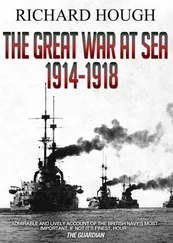Ernest Buley - Glorious Deeds of Australasians in the Great War
Здесь есть возможность читать онлайн «Ernest Buley - Glorious Deeds of Australasians in the Great War» — ознакомительный отрывок электронной книги совершенно бесплатно, а после прочтения отрывка купить полную версию. В некоторых случаях можно слушать аудио, скачать через торрент в формате fb2 и присутствует краткое содержание. Жанр: foreign_antique, foreign_prose, на английском языке. Описание произведения, (предисловие) а так же отзывы посетителей доступны на портале библиотеки ЛибКат.
- Название:Glorious Deeds of Australasians in the Great War
- Автор:
- Жанр:
- Год:неизвестен
- ISBN:нет данных
- Рейтинг книги:4 / 5. Голосов: 1
-
Избранное:Добавить в избранное
- Отзывы:
-
Ваша оценка:
- 80
- 1
- 2
- 3
- 4
- 5
Glorious Deeds of Australasians in the Great War: краткое содержание, описание и аннотация
Предлагаем к чтению аннотацию, описание, краткое содержание или предисловие (зависит от того, что написал сам автор книги «Glorious Deeds of Australasians in the Great War»). Если вы не нашли необходимую информацию о книге — напишите в комментариях, мы постараемся отыскать её.
Glorious Deeds of Australasians in the Great War — читать онлайн ознакомительный отрывок
Ниже представлен текст книги, разбитый по страницам. Система сохранения места последней прочитанной страницы, позволяет с удобством читать онлайн бесплатно книгу «Glorious Deeds of Australasians in the Great War», без необходимости каждый раз заново искать на чём Вы остановились. Поставьте закладку, и сможете в любой момент перейти на страницу, на которой закончили чтение.
Интервал:
Закладка:
Between these two extremes are all sorts of modifications; the Tasmanian, who grows apples on the sunny borders of the beautiful Huon river and enjoys a country that resembles in many of its features the rustic beauty of the best parts of Southern England. He is a big, stocky fellow, this Tasmanian, with something of the rustic simplicity of an English yeoman. But he is not by any means as simple as he appears. Now look at Tommy Cornstalk from New South Wales, tall and lanky, slow of speech and swift as a miracle in action. Hear his queer slang as he talks of his "cobbers" or mates; and shrewdly reckons his chances of seeing Australia again within a reasonable number of years. The Victorian from the rich Western plains is a stouter man, who has an intimate acquaintance with that exasperating animal the cow. Butter has been to him a means of realizing prosperity; from his early youth he has milked so many cows every morn and evening. And when he wishes to express his opinion of the Germans he calls them cows. It is his last term of abuse.
The West Australians, for some reason not yet apparent, are, as a class, the heaviest and stoutest of Australians. They number many a jack-of-all-trades in their ranks, for they have learned to turn their hands to many things. They are bronzed by a climate where the sun seldom fails to shine brilliantly; healthy, shrewd, sane and full of reckless courage. The South Australians approximate more nearly to the Cornstalk type, and from them are drawn some of the finest riders in the ranks of Australia's celebrated Light Horse.
The speech of these Australasians varies remarkably. The short-clipped speech of the men from the coastal cities contrasts strangely with the monotonous drawl of the bushmen. In the New Zealanders the old accents survive strangely; many of them talking Scotch as broad as the men of a Highland regiment. Others speak English of a remarkable purity of accent, though strangely tinged with the slang of the shearing shed, the stable and the bush track.
Of the 631 officers and 17,305 men comprised in the Australian contingent, twenty-two officers only and 6,098 men had seen no previous service. The large remainder were veterans of the Boer war. Only 190 officers and 1,451 men were married, the bulk of Australia's soldiers being single men. Eighty-two per cent. of the officers and 73 per cent. of the men were of Australian birth, the ranks containing a fair percentage of "new chums" of comparatively recent arrival from Great Britain.
Their conditions of service were as follows: —
Rates of Pay. – Lieutenant, 21s. per day; sergeant, 10s. 6d. per day; corporal, 10s. per day; private, 6s. per day.
Separation Allowance. – Married members receiving less than 8s. per day – (a) for wife living at home, 1s. 5d. per day; (b) for each child under 16 years of age, 4½d. per day. A similar allowance as in (a) is paid to the mother of a member who is solely dependent upon him for support.
Pensions. – Payable to widow on death of member of the forces or to a member on total incapacity: – Lieutenant, £91 per annum; sergeant, £70 per annum; corporal, £68 per annum; private, £52 per annum. In addition, on the death or total incapacity of a member, for each child under 16 years of age, £13 per annum. In the case of total incapacity, the wife in addition receives half the rate specified above for the respective ranks.
Under these conditions they were heading Northwards, daily approaching nearer to that Old World where the war flame burned so fiercely. For many days nothing occurred to break the regularity of the discipline by which they kept themselves fit for the great task they had undertaken; then the monotony of their journey was disturbed by an event which startled them into a sudden realization of the grim imminence of battle and death.
CHAPTER II
THE END OF THE RAIDER "EMDEN"
At 6.30 a.m. on the morning of November 9 the Melbourne was steaming at the head of the three long lines of transports when she picked up a wireless message from the cable station at Cocos Island. The message was imperfect, but conveyed to the Melbourne the fact that an enemy warship was then off the island. The convoy was at the time about sixty miles away from the island, so that it was obvious there was no time to be lost. The Melbourne was the flagship, and her commander was responsible for the safety of the transports, he had, therefore, to deny himself the supreme pleasure of setting off to deal with the stranger. He sent instead instructions to the Sydney , which at once set off, gathering speed as she went.
The excitement on board the Sydney was intense. It was an open secret that the notorious Emden was somewhere in that neighbourhood, and every soul on board, from Captain Glossop to the two boys who had been taken aboard at Sydney from the training ship Tingara at the last minute, was fervently praying that it might be the sea-raider which had sunk more than twenty British merchant vessels, and bombarded Madras. Down below the stokers were at work like demons; a significant sentence in Captain Glossop's official report afterwards revealed how well they worked. He reported that the engines worked splendidly, developing a higher rate of speed than upon the official trials of the ship; as a matter of fact, the crew worked her up to the great speed of twenty-seven knots.
Meanwhile it may be as well to explain just what had happened at Cocos Island. At five o'clock on the evening of November 8 the inhabitants, who were all officials connected with the cable and wireless stations there, noticed a strange warship approaching the island. She paid no heed to their wireless signals, but after approaching very close, stood away again at night time. Early in the morning she again appeared, and as nothing could be made of her, and she was lowering a boat, a wireless call for help was sent off at random. The stranger tried to obliterate this by sending strong wireless calls, which accounts for the message reaching the Melbourne in a mutilated condition.
The message was despatched just in time, for three boats put to land with a strong party on board. They were Germans, and at once took possession of the station, and began the work of dismantling it without any delay.
The Sydney was now making good time, and at a little after nine o'clock sighted the island, seventeen miles away. To the right of the island could be seen the smoke of a steamer, quite stationary; then the people on the Sydney knew they were in time. They were going so fast that all that could be seen of them from the island was a great plume of smoke and a mighty bow wave. That was enough for the Emden – for the stranger was, of course, the German corsair. "If that is an Australian cruiser," said the captain, von Mueller, "I'm going to sink her." Out he put to make good his vainglorious boasting, and the distance between the two vessels rapidly decreased.
There was an international group of spectators for the wonderful ocean duel that followed. The people of the cable station gathered on the roof of their building to get a view of the fight; and they were joined there by the members of the German landing party, who had no time to rejoin their ship. The manœuvres of the two vessels were dictated by their armaments. The Emden had guns of only 4-inch calibre, and it was her policy to fight at comparatively short range. The Sydney had eight 6-inch guns, and Captain Glossop was determined that she should enjoy the tactical advantage due to her by reason of her heavier metal.
The Sydney's people were all aglow with excitement, but level-headed withal. Many of them were young Australians, members of the newest navy in the world, and determined that in the first important action fought by that navy all concerned should do it credit. Lads of nineteen, with eyes ablaze with excitement, stood as coolly at their guns as the veterans of a dozen sea fights might have done. The two boys from the Tingara carried ammunition about the decks at a steady run, laughing and whistling with glee.
Читать дальшеИнтервал:
Закладка:
Похожие книги на «Glorious Deeds of Australasians in the Great War»
Представляем Вашему вниманию похожие книги на «Glorious Deeds of Australasians in the Great War» списком для выбора. Мы отобрали схожую по названию и смыслу литературу в надежде предоставить читателям больше вариантов отыскать новые, интересные, ещё непрочитанные произведения.
Обсуждение, отзывы о книге «Glorious Deeds of Australasians in the Great War» и просто собственные мнения читателей. Оставьте ваши комментарии, напишите, что Вы думаете о произведении, его смысле или главных героях. Укажите что конкретно понравилось, а что нет, и почему Вы так считаете.












